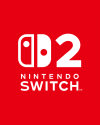Ubisoft and Genba looking to kill the grey market

Ubisoft is changing the way they distribute PC download titles in partnership with Genba Digital, a UK tech firm. The pair have developed a new process, Silent Key Activation (SKA), which makes it easier for consumers to purchase games and prevents them from being sold illegally.
Genba specialise in the digital distribution of third-party games. They take groups of keys from publishers and pass them onto consumers through their own stores. However, they handle these keys on a one to one basis, meaning that they only procure a new game key once they have distributed their current one. Matt Murphy, Genba CEO, said that this process is much easier for publishers, and avoids the need of giant Excel spreadsheets full of game keys.
With Silent Key distribution keys aren’t passed onto retailers with each purchase. Instead when a consumer buys a Ubisoft game they will be taken through the checkout process and asked to use their UPlay account. Without one the user can’t access their game, since the title is activated for a specific user’s account. This avoids the need for any game key distribution. While it is possible that the UPlay accounts themselves could be resold, it’s very messy and complicated, not to mention much more obvious to publishers, making thieves much easier to catch.
Ubisoft is pushing for SKA for all of their PC game sales, and they now won’t sell through a digital storefront that doesn’t adhere to this process. Any retailers in the Genba network will need to be SKA approved first, and some may use their own similar system such as Green Man Gaming.
Murphy says that this new method is a big step forward in the fight to close the grey market. This market is where retailers may import game codes from other regions with lower prices and sell them in high-price regions with extra margins. Or because of the lower costs, they can also sell the codes with good discounts, which makes them very competitive compared with retailers who bought the stock from the traditional channels. This happens both with physical copies of games and especially with digital codes, and publishers usually fiercely fight it as this takes significant profits away from publishers to the hands of digital retailers, and also sometimes to the hands of the end customers.
They keybank that Genba hold on the behalf of publishers is inaccessible by anyone, including Genba employees. This ensures that no one can take a game key and sell it outside of the correct retailers at a price the publisher wouldn’t agree with.
Genba has confirmed that they are working with another triple A publisher and platform holder to bring SKA to be more mainstream in game sales. While they say that SKA will help them battle the grey market, the eradication of physical box sales for PC games will help eradicate it entirely. Many resellers buy a boxed copy of a game and sell the code on, but that issue becomes irrelevant when more publishers follow Sega’s lead and stop releasing boxed PC games.


